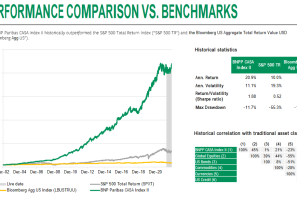Prices of U.S. single-family homes plunged 18.5 percent in December from a year earlier as the monthly pace accelerated, according to a Standard & Poor's/Case-Shiller home price index on Tuesday.
The S&P/Case Shiller composite index of 20 metropolitan areas fell 2.5 percent in December from November, compared with a 2.3 percent decline in the previous period, S&P said in a statement....
Stocks retreated on Monday and the S&P briefly fell more than 1 percent as financials relinquished earlier gains fueled by reports Citigroup is in talks to give the U.S. government a larger stake.
Stocks headed for higher open on Monday as investors took reports that Washington could take a bigger stake in Citigroup as the surest sign yet that it is ready to avert further paralysis of the financial system.
A report in the Wall Street Journal said the U.S. government may end up holding as much as 40 percent of Citigroup's common stock.
Last week shares of Citigroup and Bank of...
Stocks headed for higher open on Monday as investors took reports that Washington could take a bigger stake in Citigroup as the surest sign yet that is ready to avert further paralysis of the financial system.
A report in the Wall Street Journal said the U.S. government may end up holding as much as 40 percent of Citigroup's common stock.
Last week shares of Citigroup and Bank of A...
The Dow and the S&P 500 fell on Friday, pummeled by worries about the lack of details on the U.S. government's bank rescue plan, though the S&P pulled back from the brink of a 12-year low after the White House said it supported a privately held banking system.
Fears that some major banks could be nationalized had earlier driven the Dow to more than six-year lows. The White House made its...
U.S. stocks extended a rout on Friday after a top U.S. senator confirmed the market's worse fears, saying it may be necessary to nationalize some banks, as the S&P 500 closed in on an almost 12-year low.
Senate Banking Committee Chairman Christopher Dodd said the nationalization of some banks could be needed at least for a short time, according to a Bloomberg report.
The S&P briefly...
The S&P 500 and Nasdaq closed marginally lower on Wednesday as President Barack Obama's $275 billion plan to prop up the housing market failed to stem worries about the economy, and bleak housing data highlighted the deepening recession.
Indexes see-sawed in a narrow range throughout the day, but the S&P and Nasdaq ultimately failed to hold gains despite bargain-hunting that sent investo...
Shares of major banks in the U.S. rose early Wednesday pulling up the financial sector on optimism that President Barack Obama's administration may go ahead with a plan to buy bad assets in the financial system creating the so-called bad bank.
Look for countries with strong middle-class growth -- say, China or Brazil. Stick mainly to housing and retail. Focus on the long term. And don't attempt to do it without a local partner.
On Monday, the yen advanced across the board at the expense of higher-yielding currencies as risk aversion and slumping equities reemerged as the dominant concerns for investors.
Morgan Stanley may have its long-term credit rating cut by Moody's Investors Service, the ratings agency said on Friday.
Most U.S. stocks dropped during afternoon trading on Monday as crude oil prices rose while the outlook for bank earnings lowered.
Financial sector stocks fell on Friday, despite gains from the leading U.S. insurer, American International Group.
Tokyo stocks closed over 2 percent higher on Friday, with Japan's key Nikkei index topping the 14,000 line for the first time in about two months, as an overnight surge in U.S. stocks led to heightened optimism about the U.S. economic outlook.
U.S. stocks rose on Monday, lifting the Standard & Poor's Index to a four-month high, after data suggesting the U.S. economy may not be in recession which helped to overcome concerns over record crude oil prices, while technology shares were boosted as deal talks between Microsoft and Yahoo have been resumed.
U.S. stocks took a slow upturn on Wednesday, on better-than-expected profits airplane manufacturer Boeing Co., while technology and industrial companies also raised investors optimism by releasing positive earning results. The Standard & Poor's index took a downturn at midday trading.
Citigroup is close to concluding a deal to sell off $12 billion of leveraged loans and bonds at a discount rate to a group of private equity firms, as it moves towards clearing off soaring company debt.
U.S. stocks fell on Thursday for a second day after a rise in unemployment claims unexpectedly increased, intensifying concerns about the economy while an industry report said late payments on personal loans rose to a 15-year high.
U.S. stocks dropped for the first time Wednesday in four days as an unexpected tumble in February factory orders sparked concerns over the economy while the outlook for bank profits worsened.
U.S. stocks gained for the second day this week, with the Dow Industrials recovering from a steep 235 drop, after Standard & Poor's predicted banks might end its subprime mortgage write downs and gold soared over the $1,000 an ounce benchmark.
U.S. stocks lost earlier gains in afternoon trade on a weaker dollar and crude oil prices topped $110 a barrel, leading investors to safeguard profits from Tuesday's rally.
The 30-share prime index of the Bombay Stock Exchange (BSE), the Sensex, dropped 3.42 percent, Friday, to its lowest close in nearly six months on fears of economic slowdown in the US and rising inflation back home.


















